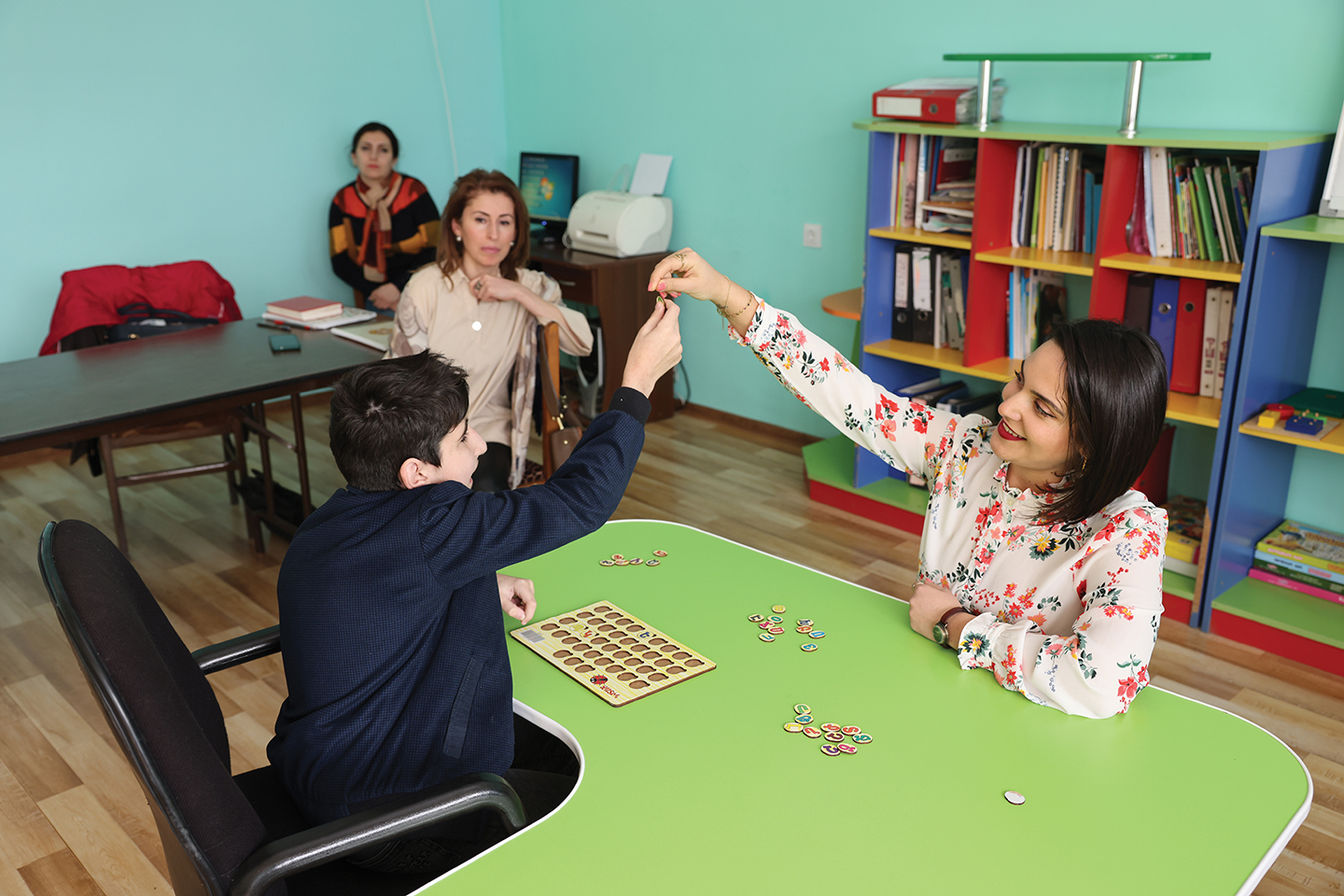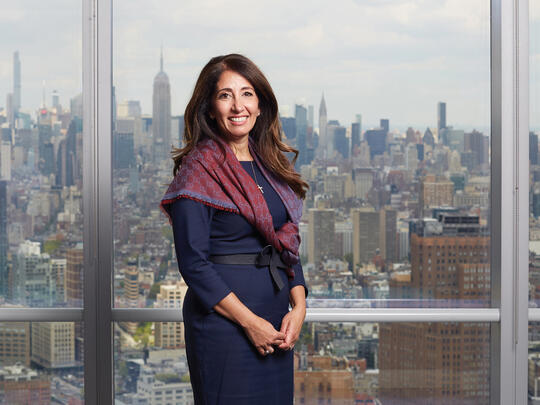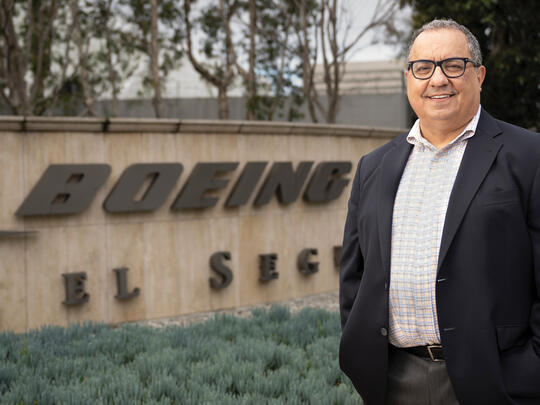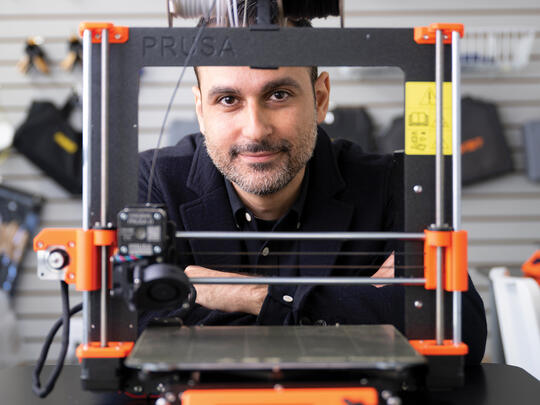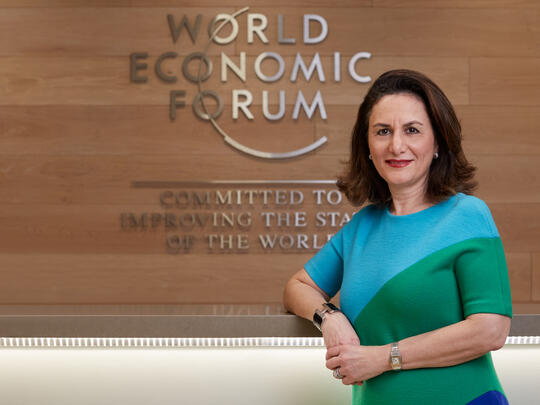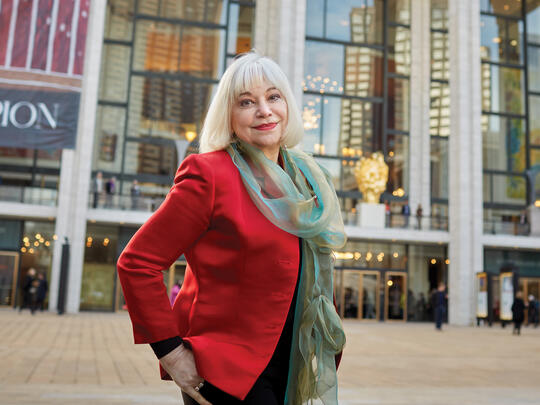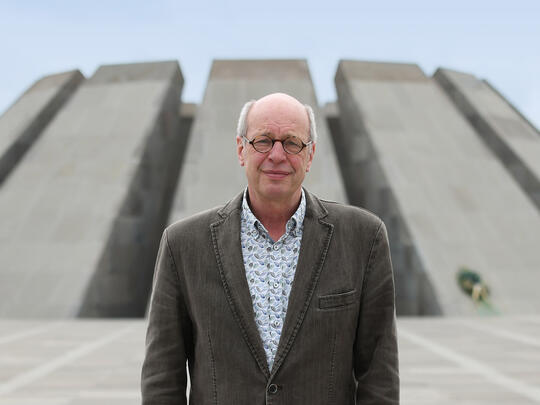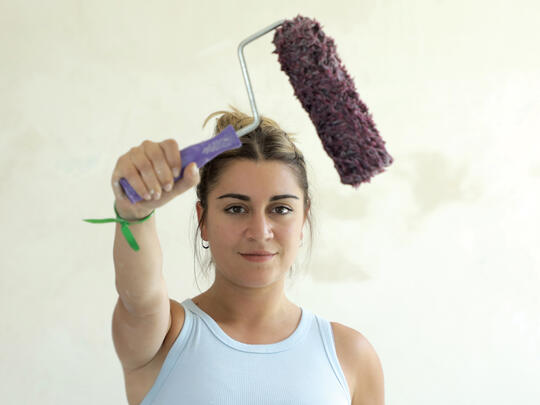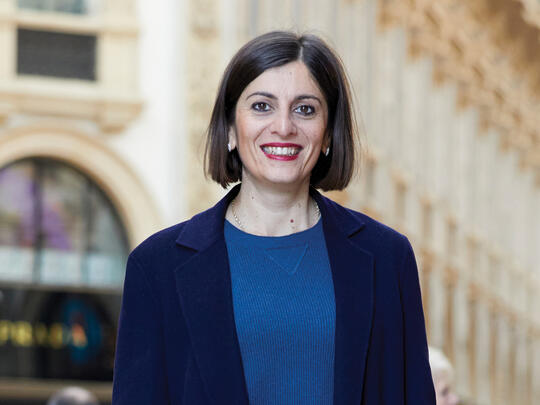CAMP NUBAR ALUMNA and AGBU Scholarship recipient V. Armineh Babikian vividly recalls the moment she purchased a one-way ticket to Armenia after passing her board exam, marking her first moments as a licensed occupational therapist. “I ended up staying there for eight months,” she shares, reminiscing on her journey to founding Therapists for Armenia—a first-of-its-kind registered 501c3 nonprofit organization advancing the fields of occupational, physical, and speech therapy in Armenian communities worldwide.
Babikian grew up in Queens, New York as the youngest of four, deeply involved in her local Armenian community. She credits her active participation to the Holy Martyrs Armenian Day School and Armenian Church of the Holy Martyrs, where she acted as President of the ACYOA Youth Group. She also attended AGBU’s Camp Nubar as a camper and counselor from 2001 to 2007 and later joined AGBU’s Young Professionals of Greater New York.
“I’ve always been passionate about advocacy, as an Armenian, as a Babikian. We’ve always been very active and outspoken— that’s a part of who I am.”
She completed her undergraduate studies at Drexel University, pursuing a bachelor’s of science in psychology and delved into research supporting mental health issues. This experience inspired her to pursue her master’s of science in occupational therapy at Columbia Uni-versity, with the help of an AGBU Scholarship, where she excelled as class president and founded the Ivy League’s first occupational therapy student association that is still going strong today.
Occupational therapy, a branch of rehabilitation devoted to supporting daily activities, is commonly misunderstood but highly important to supporting independence for those with physical or cognitive disabilities or those recovering from an injury or surgery. This form of therapy aims to simplify daily activities to improve a person’s independence, like getting out of bed or paying bills.
After gaining the expertise needed to jump-start her career as an occupational therapist, Babikian realized she wanted to participate in international service for and with people with disabilities. Through Birthright Armenia, Babikian volunteered with My Way Educational and Rehabilitation Centre, supporting children with Autism, Kharperd Specialized Children’s Home, a long-term care facility for children with disabilities, and Children of Armenia Fund (COAF), acting as their first-ever occupational therapist working in rural regions of Armenia. “We were finding a lot of developmental disabilities that we didn’t have all of the expertise to support sensimotor development and cognitive challenges.”
Babikian provided individual therapy services for children and supported their parents with educational resources on the capabilities of people labeled with developmental disabilities, advocating for families to look beyond the challenges and find their strengths. She also worked with teachers and caretakers to make modifications in the classroom to include all. “I wound up writing a guidebook and hosting workshops for schools in about ten villages so the entire staff could better understand disability and development.” Such workshops showed how to use household items to promote skill development, clarified complex disability terminology, and stressed the importance of inclusion and participation.
Babikian’s Occupational Therapy Guide-book to Inclusion became widely popular, with COAF publishing it and Birthright granting the funds to print 500 copies for distribution across Armenia and Artsakh to inclusive schools, developmental centers, and NGOs supporting children with disabilities. The momentum ramped up in 2021 when World Vision Armenia requested another 500 copies. “There are over 1,000 copies across Armenia and Artsakh—and in remote regions where this type of information is not easily accessible,” she noted. “It’s the first book of its kind in the Armenian language to provide information to those who are not specialists in the field, so it was really well received.”

Although she worked in New York as as an occupational therapist supporting people labeled with intellectual and developmental disabilities, her heart remained in Armenia. Every year, Babikian returned to organize fundraising efforts for therapeutic supplies and to host workshops.
Shortly before the pandemic, Babikian decided to gather her colleagues and friends looking to grow a network dedicated to disability services and inclusion in Armenia. Soon after, Therapists for Armenia was born. It started with a Facebook page and eventually blossomed into a virtual community that hosted webinars and strengthened connections between the Diaspora and Armenia. This page drew in specialists in occupational and physical therapy, as well as speech-language pathologists and social workers.
Then, the unimaginable happened—the 2020 Artsakh War broke out. Instead of putting a hold on future projects, Babikian ramped up her efforts—both for Therapists for Armenia and her career path. “When the war started, I immediately knew that rehab was going to be a huge need.” She was about to begin her Ph.D. program in rehabilitation sciences and global health at the University of Toronto, and shifted her research focus from developmental disabilities to rehabilitation development as a whole. “I was challenged by the emotional burnout that comes with dealing with the war, as a health care provider during COVID and being involved in humanitarian response. But stopping was not an option.”
Babikian put all her energy into building up the resources for soldiers recovering from war-related injuries. She connected with the Armenian-American Sports Medicine Coalition (AASMC) and sought out volunteers who were interested in going to Armenia to provide curated treatments for patients. Simultaneously, her page was growing exponentially with requests for more education on how to work with complex injuries among soldiers and civilians. “Through social media, other clinicians in the rehabilitation field were finding us—which is how we gathered volunteers interested in going to Armenia and providing support during the war.”

As a result, Therapists for Armenia, now composed of Armenians and non-Armenians, shifted its focus to war-related issues. From creating coloring books for children displaced by war to a journal club for participants to discuss the latest research and collaborating with Equal Rights Equal Opportunity, a group of disability advocates in Vanadzor, they worked around the clock doing everything they could to support the homeland. Equally helpful, they launched the first, free digital rehabilitation resource library in Armenia developed by all-Armenian web experts.
Babikian decided to cast out her net to experts on war rehabilitation, many of whom didn’t even know the war was taking place at all. Together, Therapists for Armenia and the AASMC gained sponsors and other partners in the United States and beyond, leading them to found the Post-Conflict Rehab Symposium in July of 2021. The multidisciplinary conference explored clinical treatment of war-related rehab and community reintegration, drawing in over 430 participants from eight different countries.
I’ve always been passionate about advocacy, as an Armenian, as a Babikian. We’ve always been very active and outspoken— that’s a part of who I am.
Later, Babikian was invited to join the World Health Organization Rehab Task Force to problem-solve how to support rehabilitation development and co-founded the Interdisciplinary Rehabilitation Fellowship for Armenia and Artsakh—a 10-month hybrid post-professional program focused on post-conflict and adult rehabilitation, leadership advocacy, and research. “The aim is not only to meet current growing rehabilitation needs, but also to support long-term development and preparation for future conflict or disaster with efforts led by local specialists across the rehabilitation sector.”
The fellowship is housed within the National Institute of Health (NIH) in Armenia in partnership with Therapists for Armenia, AASMC, Polaris EduCorp, and Health Network for Armenia (HENAR). The first cohort consists of 30 fellows from all regions of Armenia and Artsakh, ranging in the fields of occupational, physical, and speech therapy to physical medicine and rehabilitation doctors. It has a three-year timeline with the goal to strengthen local capacity and leadership to eventually have current fellows become teachers and continue to grow the fellowship within the NIH.
The diligent therapist, student, and nonprofit starter has been volunteering in Armenia for over seven years now and is currently working on her thesis, focusing on human rights with a spotlight on researching sustainable development for rehabilitation in Armenia, strengthening the healthcare system, and finding long-term developments to better prepare for future conflict or disaster.
“We have such talented and intellectual colleagues in Armenia, and I really believe we can make some big impact together, working toward sustainable development,” Babikian emphasizes. For all this powerhouse of a changemaker has already done to change the way Armenia approached rehabilitation, she is surely on the right road.
